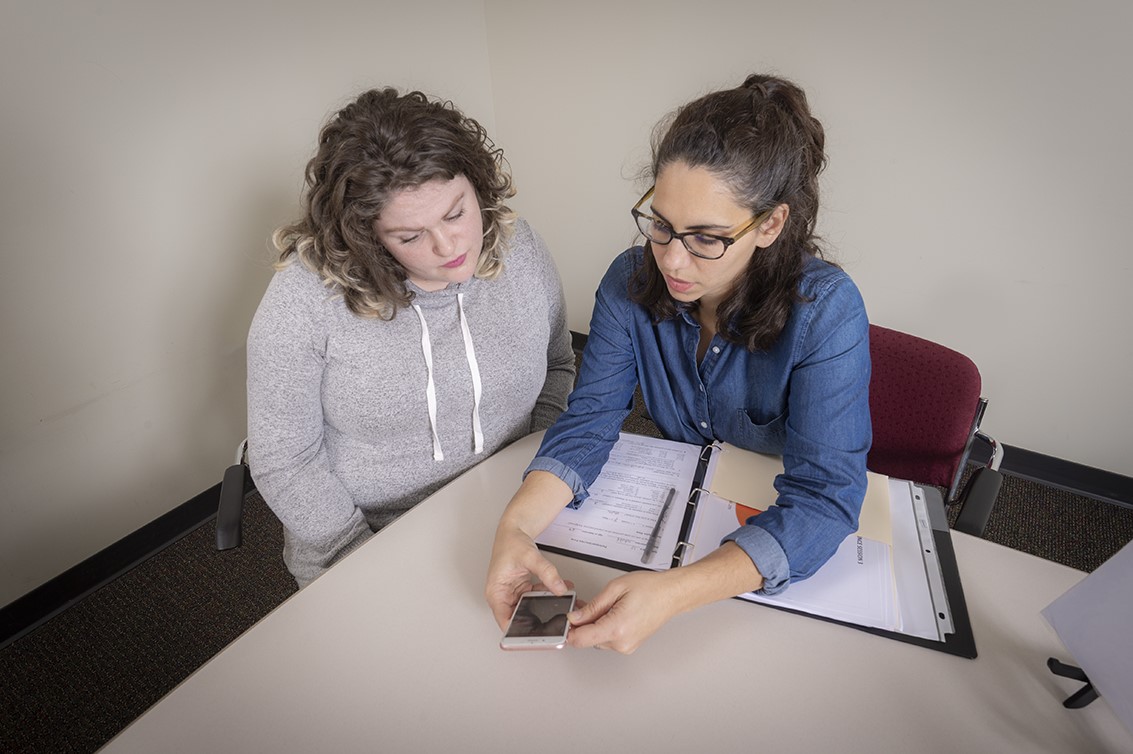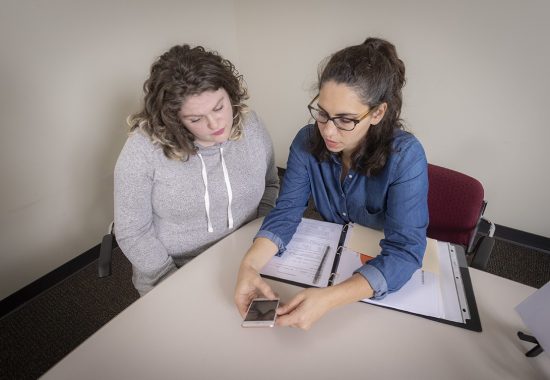
More and more people use mobile technology to help with everyday tasks like keeping track of appointments and planning their morning commute. It seems like there’s an app for everything from ordering coffee to finding romance, but could mobile technology be the future of healthcare?
Mobile healthcare, or mHealth, is receiving growing attention as a tool for managing chronic health conditions. mHealth refers to the delivery of healthcare services via mobile devices, such as cell phones, tablets, and wearable devices like smart watches. Recent years have seen a proliferation of mHealth products to facilitate self-management of a variety of chronic health conditions. However, despite tremendous growth in the general market, few products are available that address the needs and concerns of users with disabilities.
Amanda Rabinowitz, PhD, Director of the Brain Injury Neuropsychology Laboratory at MRRI is working to address this gap as part of a recently funded Rehabilitation Engineering Research Center (RERC). Led by Mike Jones, PhD, FACRM, of the Shepherd Center in Atlanta, Georgia and Frank Deruyter, MA, PhD, of Duke University Medical Center, this multi-million dollar program, funded by the National Institute on Disability, Independent Living, and Rehabilitation Research (NIDILRR), aims to improve the effectiveness of services authorized under the Rehabilitation Act by conducting advanced engineering research and development of innovative technologies.
Drs. Jones and Deruyter are leading a team of researchers and technology developers from MRRI, Shepherd Center, Duke University, University of California Irvine, and private industry (pictured below) to improve information and communication technology (ICT) access for mobile rehabilitation. Dr. Rabinowitz explains, “we’re calling this new area of healthcare technology ‘mobile rehabilitation,’ or ‘mRehab,’ to distinguish it from the broader world of mHealth, which has yet to adequately meet the needs and concerns of people living with traumatic brain injury (TBI), stroke, and other disabling conditions.”

“Digital technology is expanding the world of possibilities for rehabilitation,” said Dr. Rabinowitz. “Most health insurance plans are limited in how much outpatient rehabilitation they will support. So, maybe you get 10 sessions with a therapist before your benefit runs out.” This is a problem, because a growing body of research now shows that rehabilitative treatments work best when patients have opportunities to practice exercises repeatedly every day. “Practice makes perfect, and more is better. Frequent repetition is what leads to neural plasticity and enduring behavior change,” explains Dr. Rabinowitz.
But too often, financial and transportation barriers interfere with getting the optimal amount of practice in the clinic. To fill in this gap, home-based activities are an important component of care. That’s where mRehab comes in. Mobile technology provides a variety of tools that can improve engagement and effectiveness of home-based rehabilitation, including app-based therapy, sensor-based activity tracking, gamified exercises, and advanced monitoring that allows therapists to adjust treatments between outpatient visits.
A shift to this type of a model has the potential to transform and extend the rehabilitation care patients receive in clinic. “In the current model, we send patients home with written instructions. Then the therapist may have to wait a whole week to find out that their patient stopped the home-based program because she lost the instruction sheet or encountered another challenge,” Dr. Rabinowitz says. “Imagine sending that patient home with the confidence that she has guided instructions available on her smartphone, or better yet, instrumented exercise equipment that can actually measure and monitor what she’s doing at home and adjust exercises as she goes.” Such a model would provide more support to patients in working towards their rehab goals between clinic visits.
As part of the RERC, Dr. Rabinowitz is leading a development project with data scientist and software developer Dr. George Collier focused on treating depression and anxiety in persons with TBI. “Coping with mental health issues, like depression and anxiety, is among the most important concerns identified by people living with TBI and their families,” Dr. Rabinowitz explains. But despite this clear need, most patients never get treated. This is partly due to poor screening and identification, but it also reflects a lack of evidence-based guidelines for treatment of depression in this population.
Researchers at MRRI, led by Scientist Emerita, Dr. Tessa Hart, have a long track-record of developing and evaluating behavioral interventions for treating emotional dysfunction in persons with TBI. Dr. Rabinowitz says, “We plan to draw on our prior research to develop an mRehab tool for improving emotional health and well-being after TBI.” Dr. Rabinowitz’s project represents one of several research, development and training projects supported by this program. Learn more at the mRehab RERC website.


One comment on “MRRI Scientist Studies Mobile Healthcare”